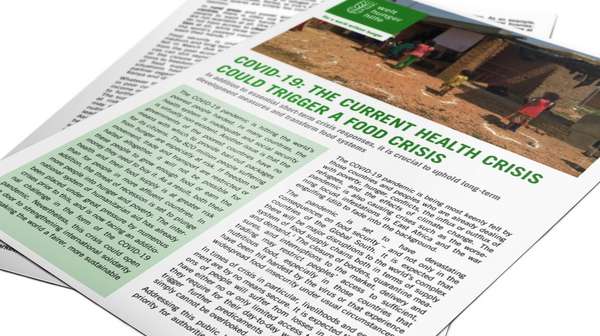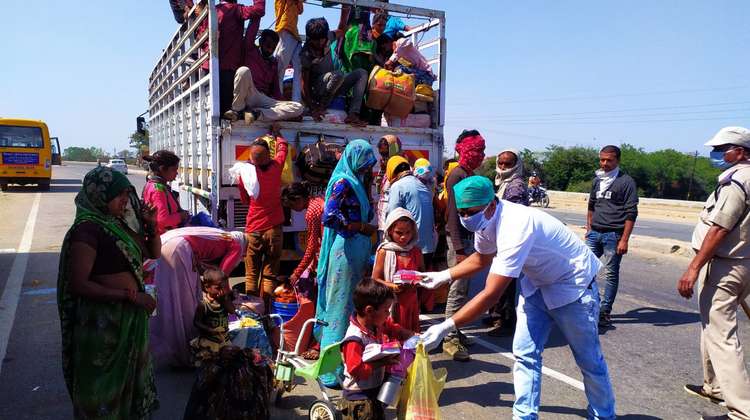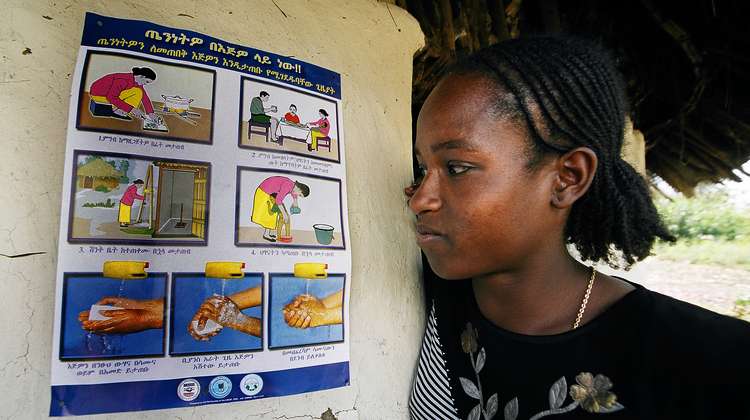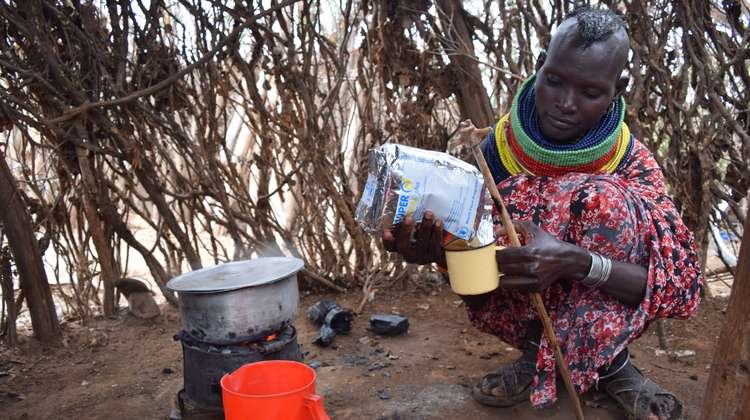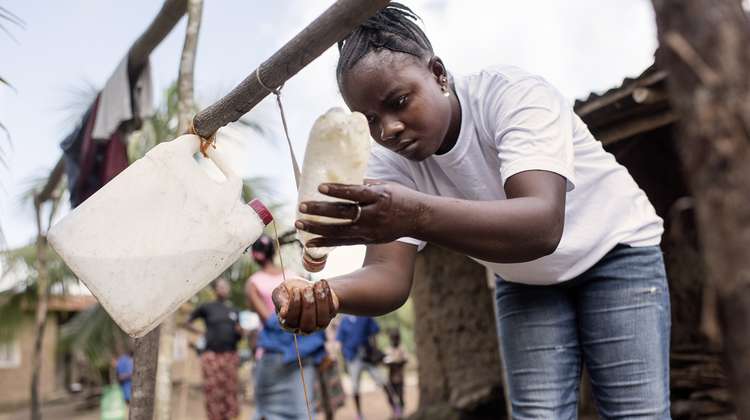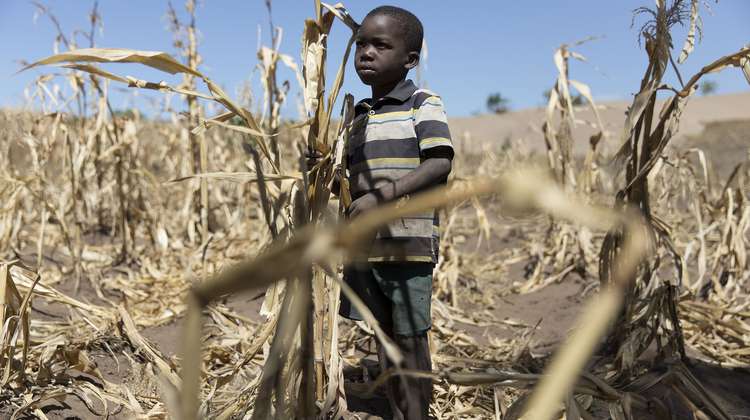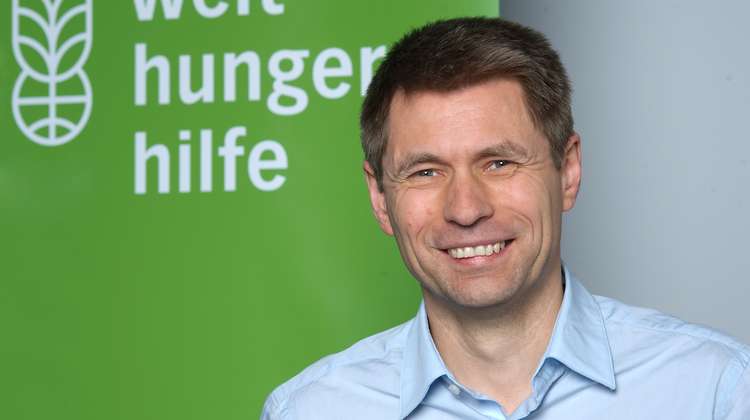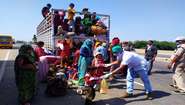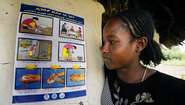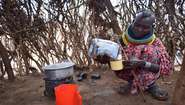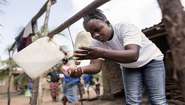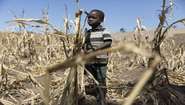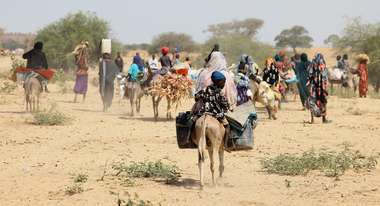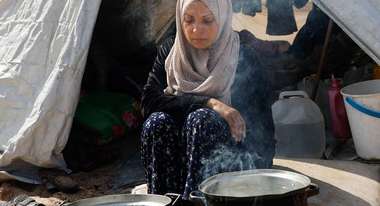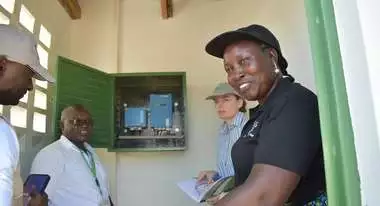In addition to essential short-term crisis responses, it is crucial to uphold long-term development measures and transform food systems.
"The Coronavirus will worsen the hunger crisis"
Welthungerhilfe provides over 500,000 euros of emergency aid.
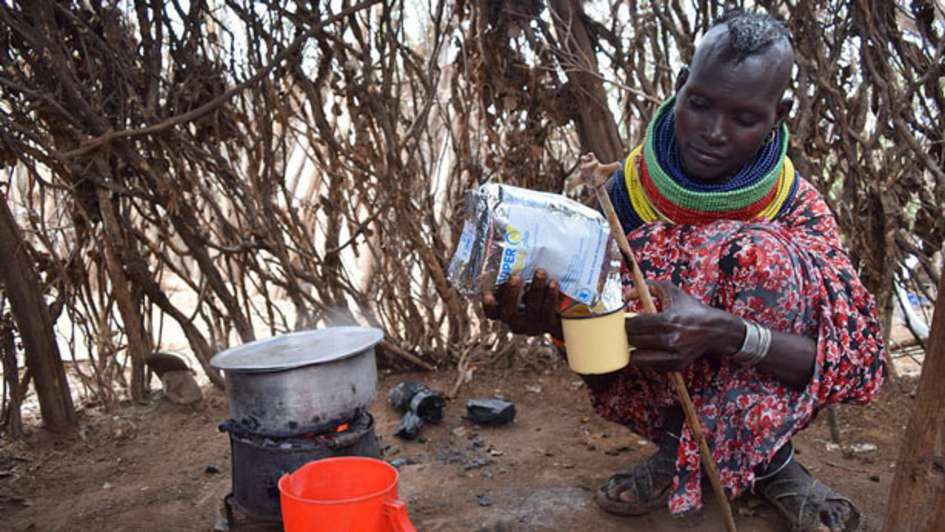
Bonn/Berlin, 02.04.2020. The spread of the Coronavirus in poor countries in Africa and Asia is not just a danger to health. Food can no longer be cultivated in sufficient quantities and supply chains are being interrupted. There is a threat of supply bottlenecks, and resulting hunger.
“If the global economy slides into a recession as a result of the Coronavirus crisis, this will also have devastating consequences for the poorest. Just a one percent decrease in economic growth means the number of people in poverty and hunger increases by two percent”, says Mathias Mogge, Secretary General of Welthungerhilfe. These are the latest calculations by the American research institute IFPRI. About 820 million people around the world are currently suffering from hunger. “People have already run out of reserves due to droughts or floods over recent years. In East Africa, a plague of locusts is also threatening harvests and animal feed. The consequences of the measures imposed because of the COVID-19 pandemic are worsening the difficult nutrition situation and acting as an accelerator of the crisis. They will exacerbate the global hunger situation and destroy many livelihoods”, stresses Mathias Mogge.
To contain the Coronavirus crisis in its partner countries, Welthungerhilfe has made 500,000 euros available in the short term: Hygiene and health measures should help to prevent infections. Together with WASH United and with professional advice from an expert from the Institute for Hygiene and Environmental Medicine, Charité Universitätsmedizin Berlin, an educational package including a comic strip in more than 20 languages is being developed. Food is also being provided for people in quarantine who are in particular need.
Poorer countries also need long-term support in combating the effects of the COVID-19 pandemic. The donor community should use existing structures to help the poorest countries to react to the current crisis and to cushion the economic consequences.
This includes helping them to build up social security systems, and to transform the nutrition system, i.e. the way that we produce, trade and consume food, to make it more fair, sustainable, and crisis-resistant.
Secretary General Mathias Mogge and selected country directors (e.g. on the issue of the Coronavirus and locusts) are available for interviews upon request.
Press photos for download
Usage note: Please note that the pictures may only be used in a Welthungerhilfe context and may not be passed on to third parties. Images must bear the credit copyright "Photographer"/Welthungerhilfe. No long-term archiving. Please delete pictures after use!
Welthungerhilfe is one of the largest private aid organisations in Germany; politically independent and non-denominational. It is fighting for “Zero Hunger by 2030”. Since it was founded in 1962, more than 9,300 overseas projects in 70 countries have been supported with 3.71 billion euros. Welthungerhilfe works on the principle of empowering people to help themselves: from rapid disaster relief to reconstruction and long-term development cooperation projects with national and international partner organisations.





